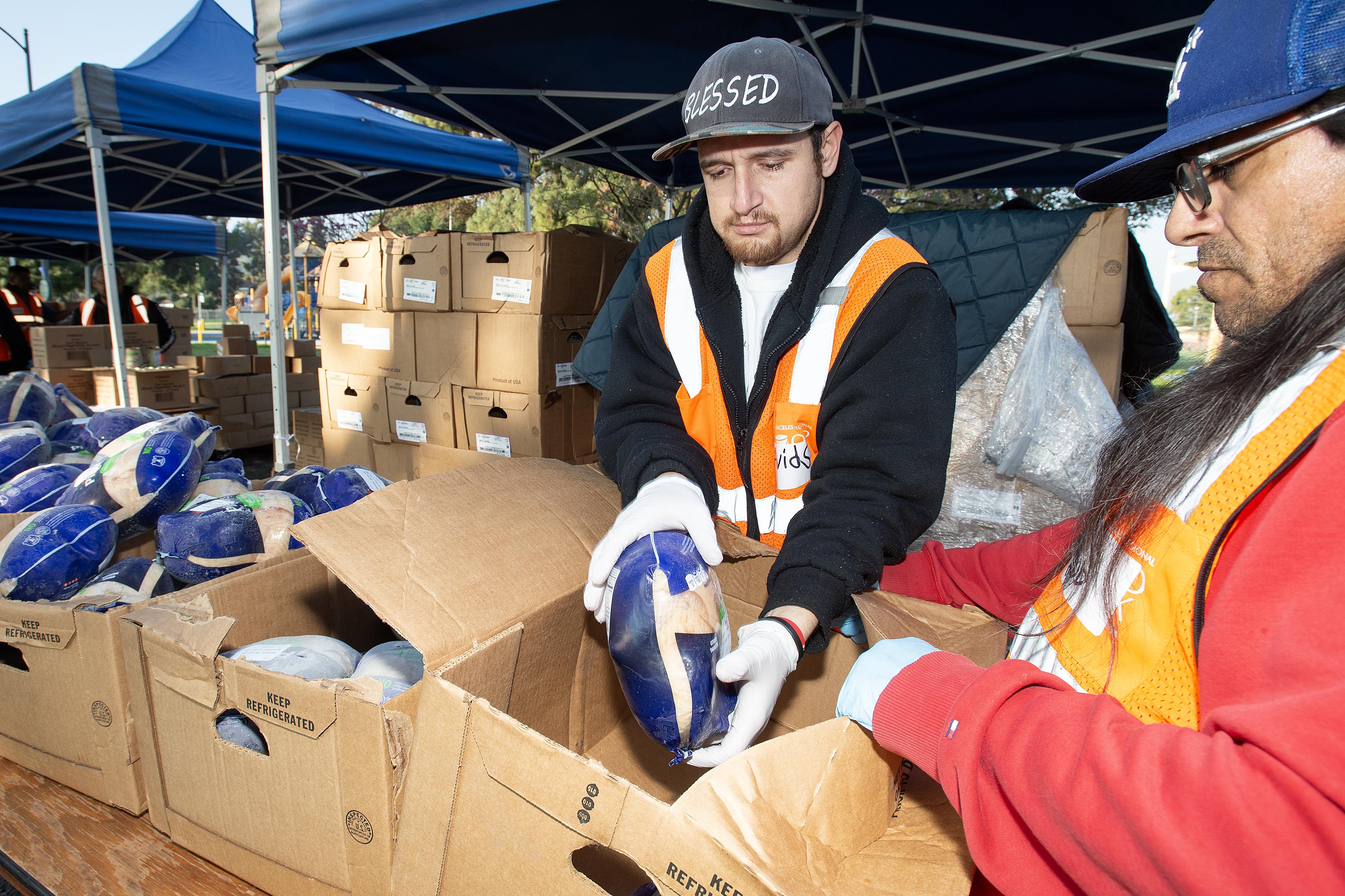In a world where food insecurity knows no boundaries, a beacon of hope emerges – the humble yet powerful institution known as a food bank. Picture a bustling hub of compassion and community, where shelves stocked with generosity await those in need. Join us on a journey to explore the heartwarming impact and vital role of food banks in bridging the gap between hunger and hope. Let’s delve into the realm of sustenance, support, and solidarity as we unveil the untold tales of these essential pillars of nourishment.
Table of Contents
- – Empowering Communities Through Food Banks
- – Tackling Food Insecurity: The Role of Food Banks
- – Sustainable Practices in Food Banks
- – Bridging Gaps: Collaborating with Food Banks for a Stronger Future
- Q&A
- The Conclusion


– Empowering Communities Through Food Banks
In a world where food insecurity continues to be a pressing issue, community food banks stand as beacons of hope and support for those in need. These vital organizations not only provide nourishment but also foster a sense of unity and empowerment within neighborhoods.
At the heart of food banks is the dedication to helping individuals and families access nutritious meals during challenging times. Through generous donations and volunteer efforts, these community hubs serve as lifelines for many, offering sustenance and strength when it’s needed the most. Together, we can make a difference in the lives of those facing food insecurity, one meal at a time.
| Benefits of Community Food Banks: | How You Can Help: |
|---|---|
| 1. Provides essential food items | 1. Donate non-perishable goods |
| 2. Supports local families in need | 2. Volunteer your time |
| 3. Strengthens community bonds | 3. Spread awareness about food insecurity |


– Tackling Food Insecurity: The Role of Food Banks
Food banks play a vital role in addressing food insecurity by providing a beacon of hope for individuals and families facing hunger. These establishments serve as a crucial link between surplus food donations and those in need, offering not just sustenance but also a sense of community support. Through the dedication of volunteers and the generosity of donors, food banks work tirelessly to alleviate hunger and ensure that no one goes to bed on an empty stomach.
Key Functions of Food Banks:
- Distributing nutritious food to those experiencing food insecurity.
- Collaborating with local businesses and farms to rescue surplus food.
- Providing a lifeline for vulnerable populations during times of crisis.
- Offering educational programs on healthy eating and food budgeting.
Impact of Food Banks:
- Reducing food waste by repurposing surplus food for those in need.
- Fostering a sense of solidarity within communities through volunteer efforts.
- Offering a temporary solution to immediate hunger while advocating for systemic changes.
- Empowering individuals to regain stability and focus on other aspects of their lives.


– Sustainable Practices in Food Banks
Food banks play a crucial role in providing essential support to individuals and families in need. Embracing sustainable practices is key to ensuring their long-term impact on communities. By implementing eco-friendly initiatives, food banks can reduce waste, conserve resources, and promote a healthier environment.
One effective way for food banks to incorporate sustainability is by partnering with local farmers and food producers to source fresh, local, and seasonal produce. This not only supports the community but also reduces the carbon footprint associated with transporting food over long distances. Additionally, implementing composting programs and food recovery initiatives can minimize food waste and redirect surplus food to those facing food insecurity, contributing to a more sustainable and equitable food system.

– Bridging Gaps: Collaborating with Food Banks for a Stronger Future
In today’s interconnected world, the power of collaboration shines brightly as communities come together to build a stronger, more resilient future. By partnering with food banks, businesses and organizations can make a meaningful impact on those facing food insecurity. Supporting these vital institutions not only nourishes bodies but also feeds the soul, fostering a sense of unity and compassion among all involved.
When we join forces with food banks, we create a web of support that spans beyond mere donations. Together, we can:
- Provide nutritious meals to families in need
- Educate the community on food waste reduction
- Empower individuals to lead healthier lives
By bridging gaps and fostering alliances with food banks, we pave the way for a brighter tomorrow where no one goes to bed hungry. Let’s make a difference today that resonates for generations to come.
Q&A
Q&A: All About Food Banks
Q: What is a food bank, and how does it work?
A: A food bank is a non-profit organization that collects, stores, and distributes food to people in need. They typically gather surplus food from various sources and distribute it to individuals and families facing food insecurity.
Q: Who can benefit from food banks?
A: Anyone facing food insecurity can benefit from food banks. This includes low-income families, seniors, individuals experiencing homelessness, and others who struggle to access an adequate amount of nutritious food.
Q: How can someone donate to a food bank?
A: Donating to a food bank can be done in various ways. Individuals can contribute by donating non-perishable food items, volunteering their time, or making monetary donations to support the organization’s operations.
Q: What are some common misconceptions about food banks?
A: One common misconception is that food banks only serve homeless individuals. In reality, food banks support a diverse range of people, including working families and seniors. Another misconception is that donated food items are expired or of low quality, which is often not the case as food banks prioritize providing nutritious food to those in need.
Q: How can communities support their local food banks?
A: Communities can support food banks by organizing food drives, volunteering at distribution centers, spreading awareness about hunger issues, and advocating for policies that address food insecurity at the root.
Q: What impact do food banks have on communities?
A: Food banks play a crucial role in alleviating hunger and food insecurity within communities. By providing access to nutritious food, they help improve the overall health and well-being of individuals and families in need.
Q: Are there any challenges that food banks face?
A: Food banks may encounter challenges such as limited resources, fluctuations in food donations, and the need to reach underserved populations effectively. Despite these challenges, food banks continue to strive to meet the demand for food assistance in their communities.
Q: How can individuals get involved with food banks?
A: Individuals can get involved with food banks by volunteering their time, organizing fundraising events, participating in food drives, or simply spreading awareness about the importance of addressing hunger issues in their communities. Every small effort can make a difference in supporting those in need.
The Conclusion
In conclusion, food banks serve as essential pillars of support within our communities, offering a glimmer of hope to those facing food insecurity. By bridging the gap between surplus resources and those in need, these organizations embody the spirit of compassion and unity. Let us continue to rally behind the noble cause of fighting hunger and building a brighter future for all. Together, we can make a difference, one meal at a time.




0 Comments